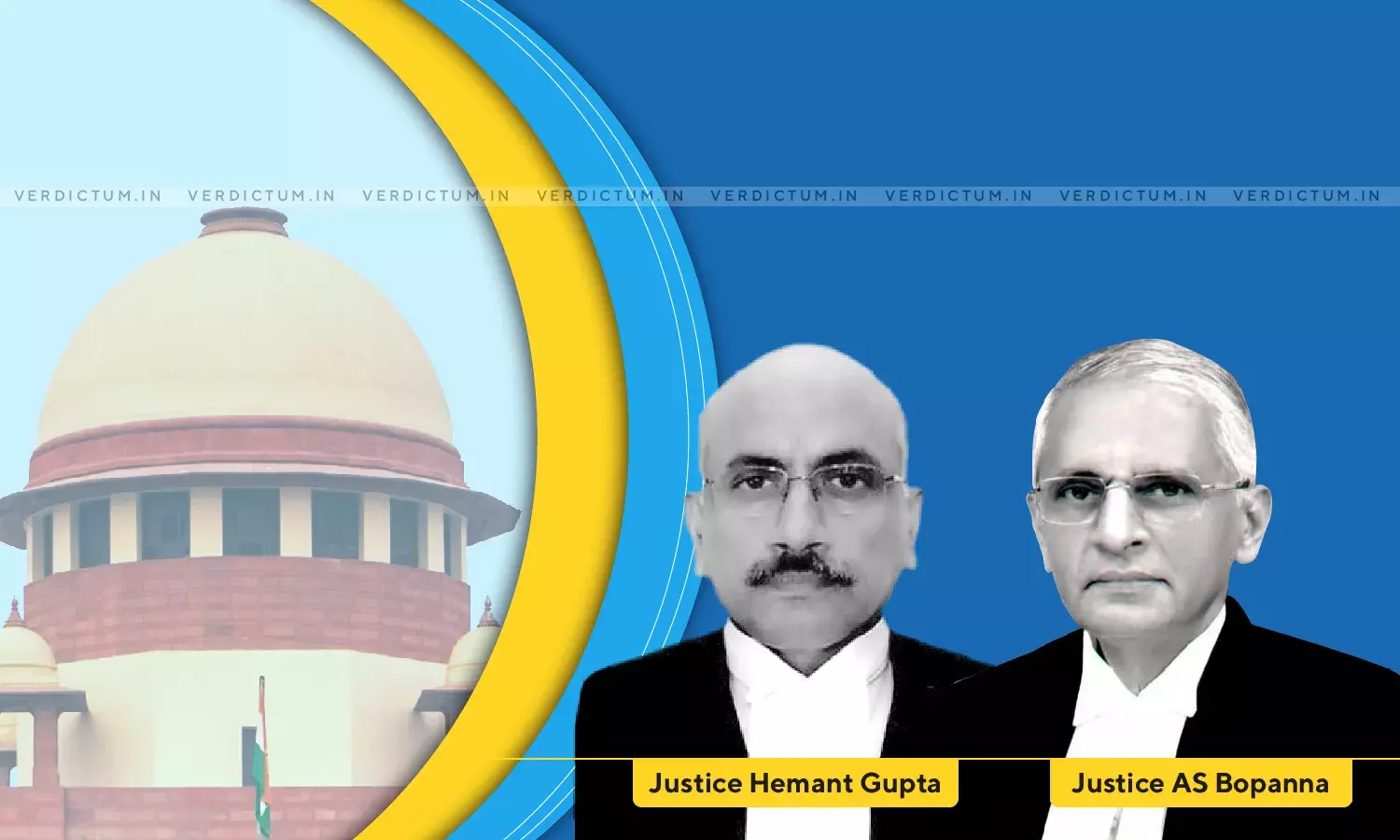Kashmiri Migrants Who Retire From Government Jobs Can Retain Government Accommodation Upto 3 Years: Supreme Court Refuses To Recall Its Earlier Judgment
A Bench of the Supreme Court consisting of Justice Hemant Gupta and Justice AS Bopanna ruled that a retired government employee who is a Kashmiri Migrant would not be entitled to retain Government accommodation for a period exceeding three years, be it in Delhi or in the National Capital Region or for that matter anywhere in the country. The Bench refused to recall its earlier Judgment in the matter of Union of India & Anr. vs. Omkar Nath Dhar & Ors. The present Order has been passed in continuation of the said Judgment.
On March 28, 2017, the Centre had formulated a scheme for Kashmiri migrant employees who would be accommodated in Delhi for five years starting from the date of their retirement and thereafter to be shifted to NCR. The rehabilitation scheme was introduced following an order issued by the Delhi High Court in the case of Union of India Vs Vijay Mam in the year 2012. The scheme was for the applicants who were the parties in the High Court, but later, on May 19 2017, the benefit was extended to all retired government employees who are Kashmiri migrants.
The Bench struck down the office memorandum of the scheme by observing that allowing government accommodation to retired Government employees who are Kashmiri Migrants can't meet the touchstone of Article 14 of the Constitution of India. It observed that, "The compassion could not be extended in perpetuity and has to end some day or the other."
The Bench reiterated its Judgment of August 5, 2021 in which it had held that, "the Government accommodation is only meant for in-service officers and not for the retirees or those who have demitted office. Therefore, the view of the learned Delhi High Court and that of the Punjab & Haryana High Court is erroneous on the basis of compassion showed to displaced persons on account of terrorist activities in the State."
In this case, the Court has dismissed three applications filed by occupants of the government accommodation at Delhi and NCR as per the rehabilitation scheme as well as an occupant in Faridabad. The legal heirs of the party Respondent in the case sought recall of the previous Judgment on the ground that they were not heard in place of the deceased Respondent.
Seeking to recall the previous order, it was submitted that the Kashmiri Migrants form a different class as victims of terrorism, therefore, their case was dealt with while keeping in view peculiar hardships faced by them. Neither the transit accommodation is available for them nor can they go to their houses which stand either occupied by the local population or destroyed. Therefore, the Kashmiri Migrants have been treated as a class apart. 31 Kashmiri Migrants were given protection by the Supreme Court in the case of J.L. Koul v. State of J & K in the year 2009 and similar benefit should be accorded to the other occupants in Delhi and NCR. It was argued that the directions in the matter of J.L. Koul were not under Article 142 as held in the previous Judgment, but based on a determination of rights of Kashmiri Migrants to residential accommodation.
However, while dismissing the submission, the Bench noted that the government accommodations are meant for serving government employees, and post retirement they, including Kashmiri Migrants, are granted pensionary benefits including monthly pension. Therefore the government employees and Kashmiri migrants are on the same footing.
"The classification made in favour of Government employees who were Kashmiri Migrants stands on the same footing as that of other Government employees or public figures. There cannot be any justification on the basis of social or economic criteria to allow the Kashmiri Migrants to stay in Government accommodation for indefinite long period."
The Bench further said, "To say that they would return to the Valley when the situation will improve is an open-ended statement capable of being interpreted in different ways. The satisfaction of improvement of situation would be widely different by the erstwhile Government employees and the State. But in no case it can be countenanced that the former Government employee, may be a Kashmiri Migrant, is entitled to stay in a government accommodation for an indefinite period."
The Court has allowed Kashmiri migrants to retain government accommodation for three years so they can arrange alternative accommodation. If alternative accommodation is not available for them at their instance, they are at liberty to move to the transit accommodation or to avail cash amount in lieu of transit accommodation.
The Court recorded Center's statement that in order to provide accommodation to the 6,000 Kashmiri migrants who are getting employed in the Government of Jammu and Kashmir in the valley, 6,000 Transit Accommodation units are being constructed for Kashmiri migrant employees in various districts of Kashmir Valley at an estimated cost of Rs.920 Cr. It has also given various benefits to Kashmiri migrants including grant of financial assistance, financial package for repairs and renovation of the houses, jobs, ration etc.
The Bench clarified that, "the three-years period can also be considered as cooling off period for the officers who were in active intelligence work so that they can resume normal life but the excuse of once working for intelligence agency is not a valid ground to occupy the Government accommodation for indefinite period."
The Court granted liberty to the Center to file an application for modification of order related to protection given to 31 retirees by the Judgment of JL Koul, while extending time to the kin of deceased government employee Omkar Nath Dhar to vacate the government house till November 30, 2021. The Government also was asked to file an action taken report on or before December 15, 2021.
Parties : Union of India Vs Omkar Nath Dhar




